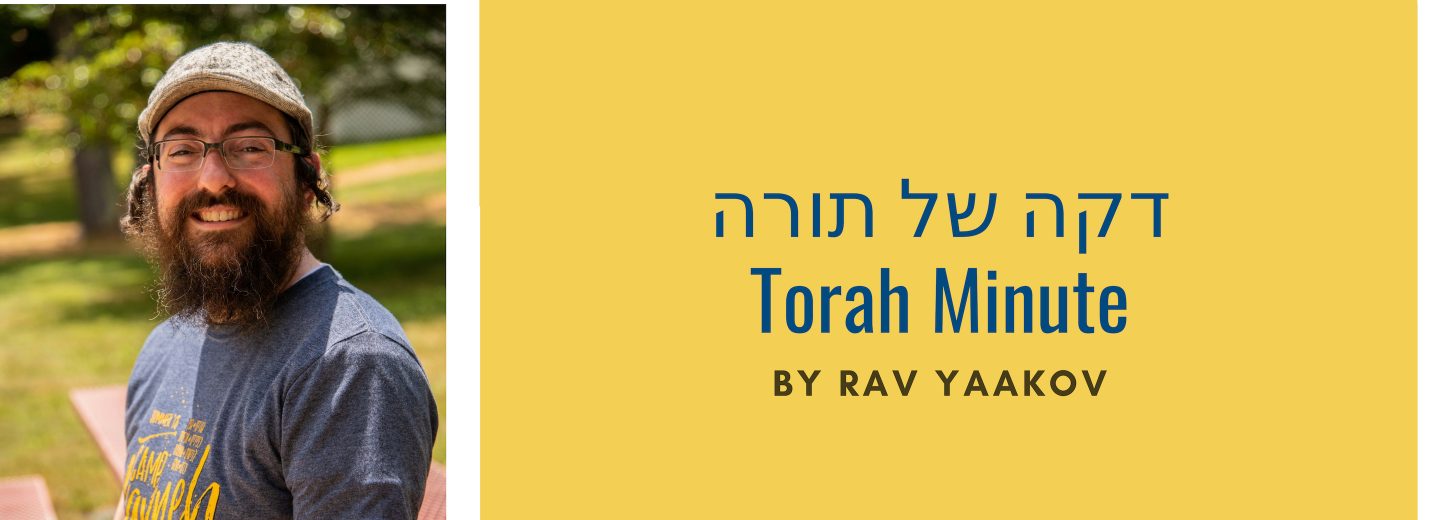Parshat Yitro – Hearing the Still, Small Voice
This week’s parsha marks the culmination of everything we’ve learned so far about the journey of the Jewish people, starting from Avraham and Sarah way back in Bereshit, through Canaan and Charan and Egypt and out of Egypt into the desert — it has all come down to this moment: receiving the Ten Commandments at Mount Sinai.
The Torah records this event as one of the most awe-inspiring and spectacular encounters possible for a human being to experience:
On the third day, as morning dawned, there was thunder, and lightning, and a dense cloud upon the mountain, and a very loud blast of the horn; and all the people who were in the camp trembled. Moshe led the people out of the camp toward God, and they took their places at the foot of the mountain.
Now Mount Sinai was all in smoke, for God had come down upon it in fire; the smoke rose like the smoke of a kiln, and the whole mountain trembled violently. The blare of the horn grew louder and louder. As Moses spoke, God answered him in thunder.
The midrashic commentaries state that the people were able to see the sound of the thunder and hear the sight of the lightning — their senses flowing into one another in trying to comprehend the reality of God’s presence coming down to them and the spiritual cacophony that surrounded them. The commentators also share that God’s voice could be heard all over the world, in all languages. Some even say that the people were so utterly overwhelmed that they died on the spot after receiving the first two commandments directly from God and had to be revived, or that the impact of God’s voice sent them hurling 12 miles back in the desert and they had to be brought back to Mount Sinai by angels. This is why they beg Moshe to deliver the remaining eight commandments as an intermediary.
However, amidst all of this commotion, the climactic moment of experiencing God’s voice was one of ultimate stillness. Shemot Rabbah (29:9) says:
When God gave the Torah, no bird screeched, no fowl flew, no ox mooed, no angel flapped its wing, no celestial being uttered…the sea did not roar, and no creature uttered a sound. Throughout the entire world, there was only a deafening silence as God’s voice came forth saying “I am the Lord your God.”
The entire world stopped for a moment and was utterly still, with every creation attentive to the revelation of God on Earth. Imagine that moment: when suddenly the noise stopped and everything was not just silent, but more still than it had ever been. And the world was filled with the voice of God, with all of creation experiencing God together.
In the significance of this moment the Torah is teaching us that beyond the noise and haste, beyond the cacophony and spectacle that is also holy, remains a voice of Godliness in everything. When we don’t have occasion to be at Mount Sinai, we are meant to find this voice in our own lives. Personally, I’ve found it at the moment in davening when suddenly an entire room of people goes completely quiet at the amidah, the silence full which each person’s barely whispered tefillot. We can also experience this voice when we are inspired by a new idea out of nowhere, when we embrace someone we love, when we witness the ocean or a beautiful sunset. The voice we hear coming through is what Tanach later refers to, in Melachim Bet, as the kol demamah dakah, the still, small voice that somehow has the power to cut through all of the tremendous noise, the overloading of our senses, and remind us of God within us, within everything. May we strive to listen.
Questions for the Shabbat Table:
- What do you think happened first and what happened second? Did the world go quiet because God spoke, or did the world get quiet and then God spoke?
- What do you think the midrash is trying to tell us by saying that everything was quiet?




